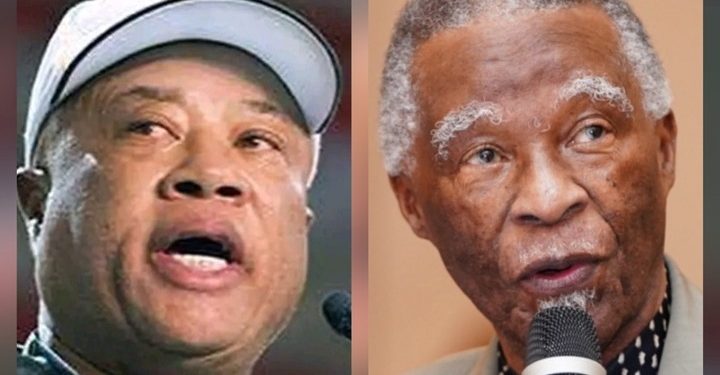A recent meeting between the Thabo Mbeki Foundation and a representative from the US Embassy in South Africa has stirred debate, particularly after ANC National Executive Committee member Tony Yengeni expressed alarm. The foundation announced its engagement to prepare for a courtesy visit from a Washington DC delegation next week, a move intended to foster international ties. However, the reaction from Tony Yengeni, who warned that the country is in big trouble due to the meeting’s participants, has added a layer of tension to the development.
The meeting, held in a formal setting with a long table adorned with documents and water bottles, involved discussions to ensure a smooth visit from the US delegation. The foundation’s statement highlights its efforts to strengthen diplomatic relations, a common practice for organisations seeking global collaboration. The presence of the US Embassy representative underscores the international interest in the foundation’s work, which often focuses on African leadership and development. Photographs show a professional atmosphere, with participants engaged in serious dialogue.
We are in big trouble..Look at who Mbeki is meeting 🙄 pic.twitter.com/sViFFjOrQV
— Tornado..Veteran 102 (@tyengeni1954) August 21, 2025
Tony Yengeni’s response, focusing on the identity of those involved, suggests unease about the implications of this engagement. The comment, “We are in big trouble, look at who Mbeki is meeting,” implies a perception of risk, possibly linked to political or ideological concerns. This reaction reflects a broader sentiment within some circles about foreign influence in South African affairs, a topic that often sparks discussion. Tony Yengeni’s status within the ANC lends weight to the statement, though the exact nature of the trouble remains unspecified.
For many South Africans, international partnerships can be a double-edged sword, offering opportunities while raising questions about sovereignty. The Thabo Mbeki Foundation, led by a former president, carries significant historical credibility, making its choices a focal point for public and political scrutiny. The upcoming visit from Washington DC could signal economic or political support, yet Tony Yengeni’s alarm suggests a divide in how such interactions are perceived. This tension highlights ongoing debates about the country’s direction in global relations.
The meeting’s purpose appears straightforward, aiming to coordinate logistics and set a positive tone for the delegation’s arrival. The foundation’s track record of engaging with global leaders supports this intent, yet Tony Yengeni’s reaction introduces uncertainty. Without further details, it is unclear whether the concern stems from personal rivalry, policy differences, or broader geopolitical fears. The lack of elaboration leaves room for interpretation among observers.
Opinion on this matter varies. Some may view the meeting as a valuable step toward international cooperation, appreciating the foundation’s outreach. Others, aligning with Tony Yengeni’s stance, might see it as a threat to national interests, calling for caution in dealings with foreign entities. The incident reflects the complex balance South Africa navigates between global engagement and local priorities, a challenge that continues to shape public discourse.






















